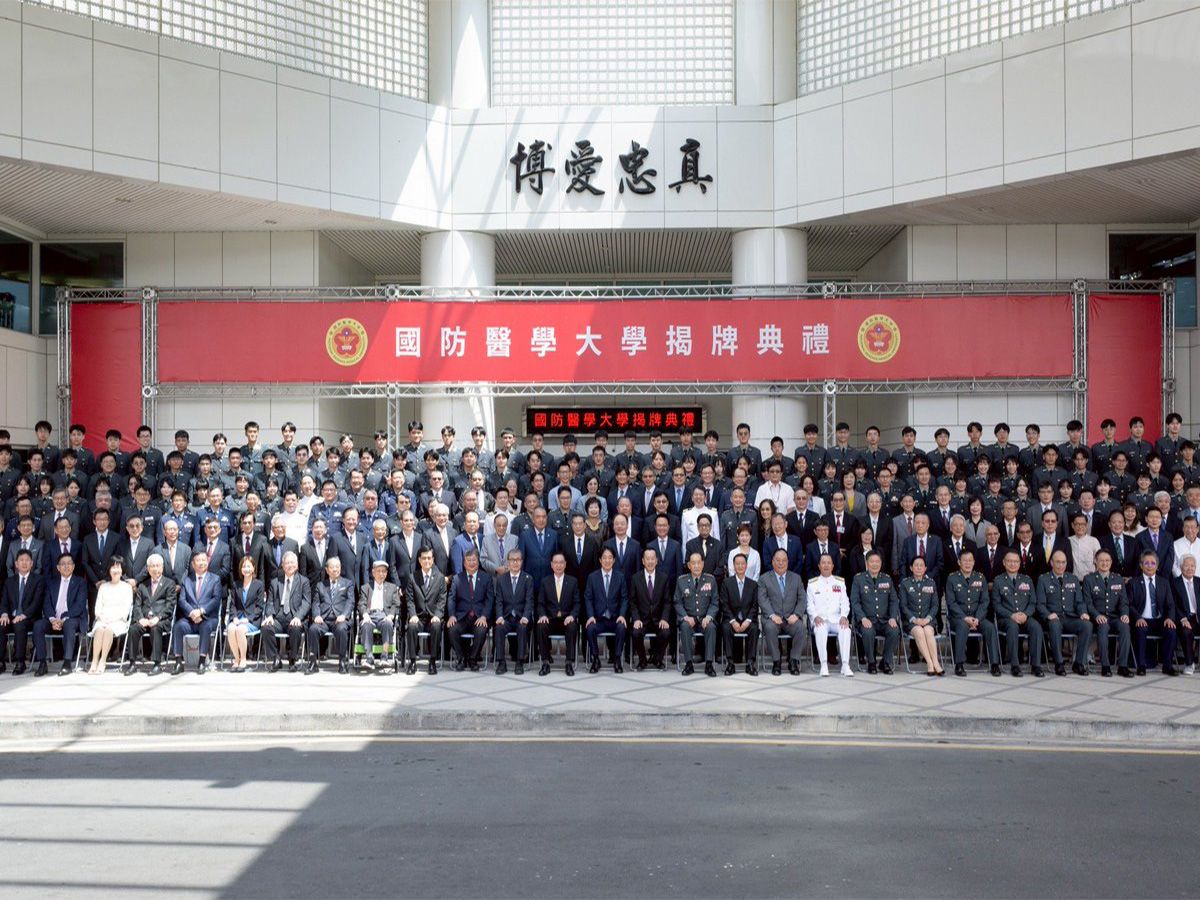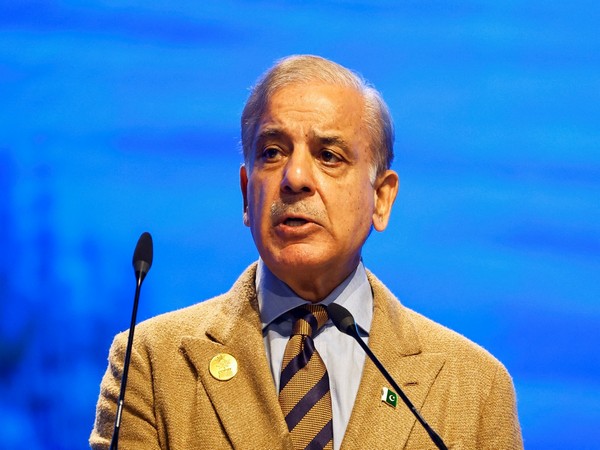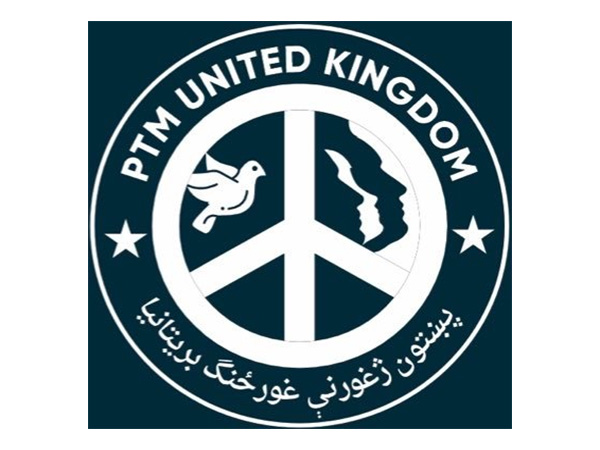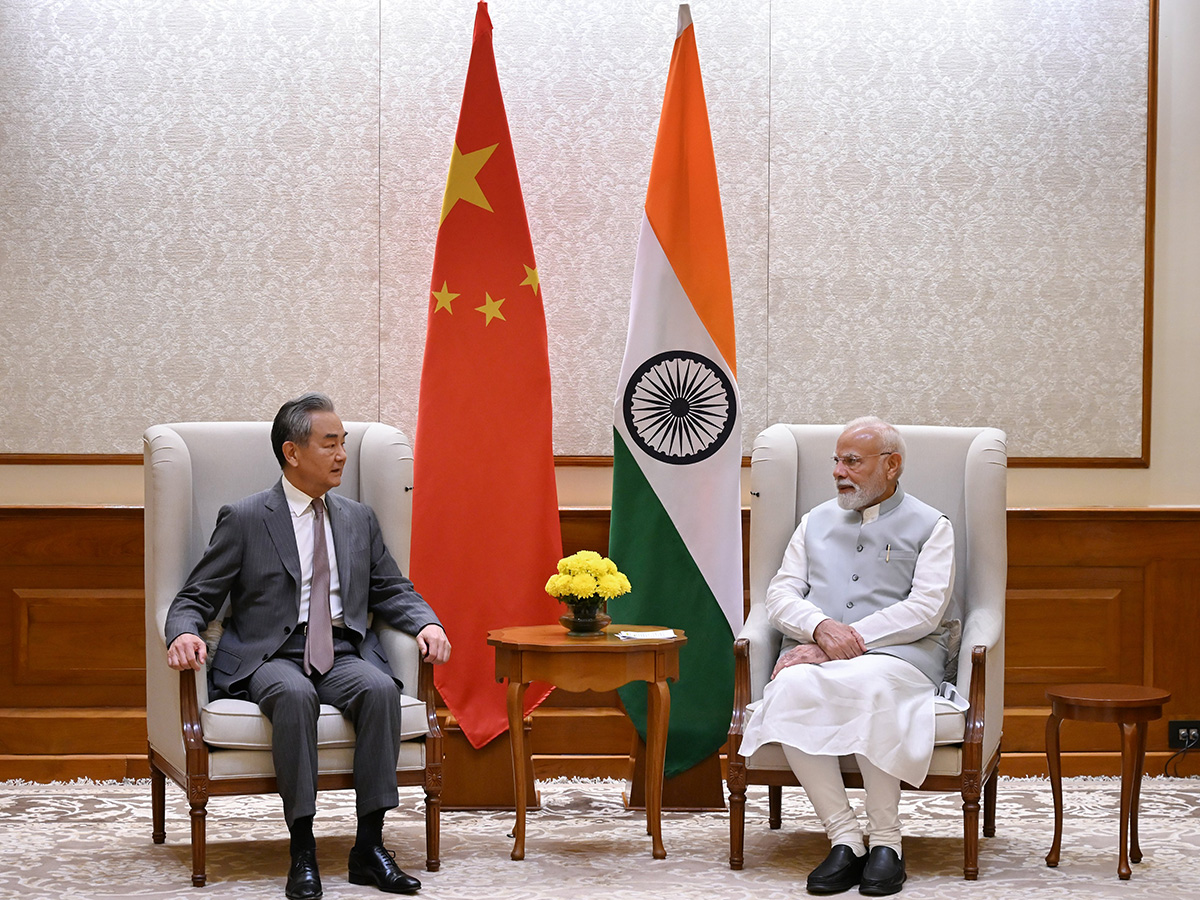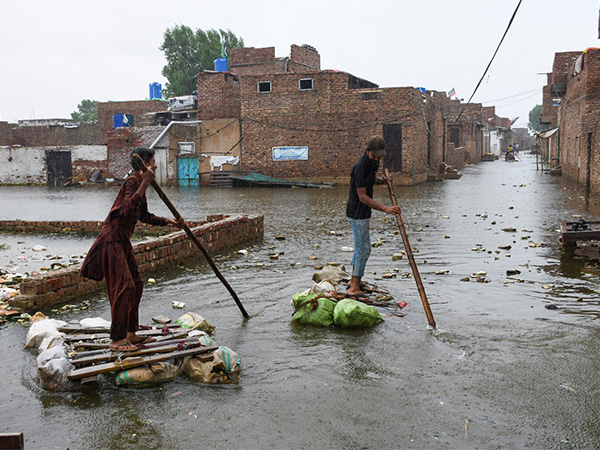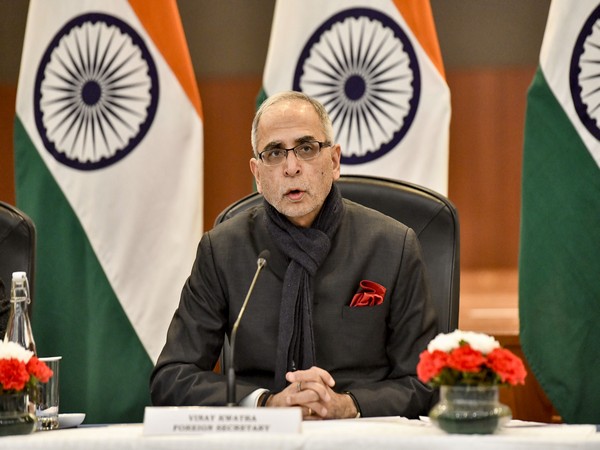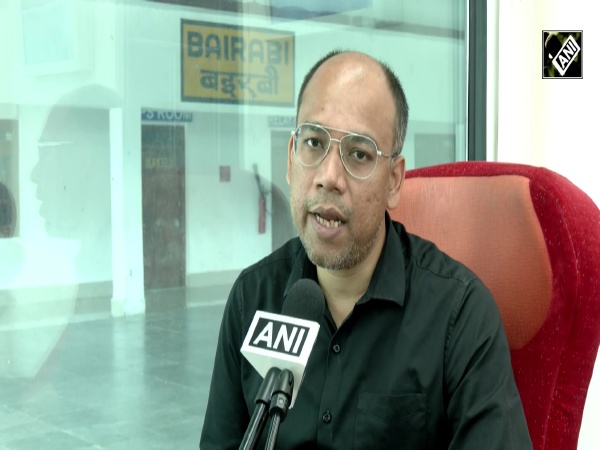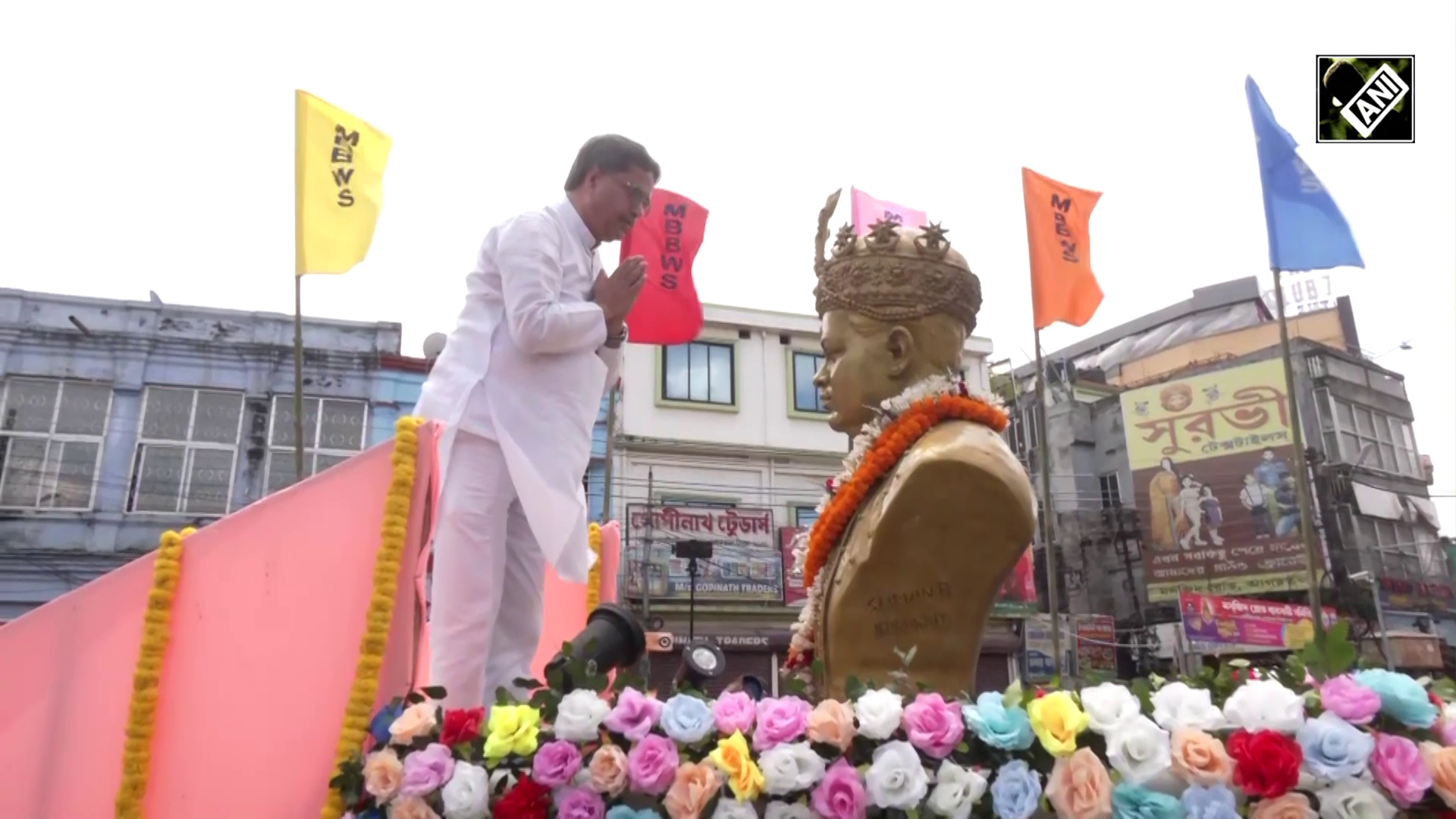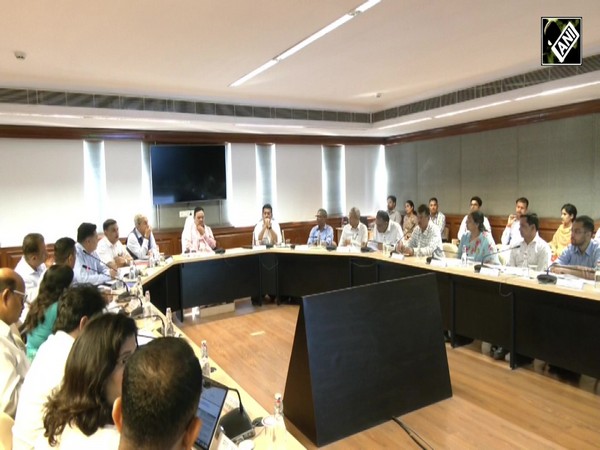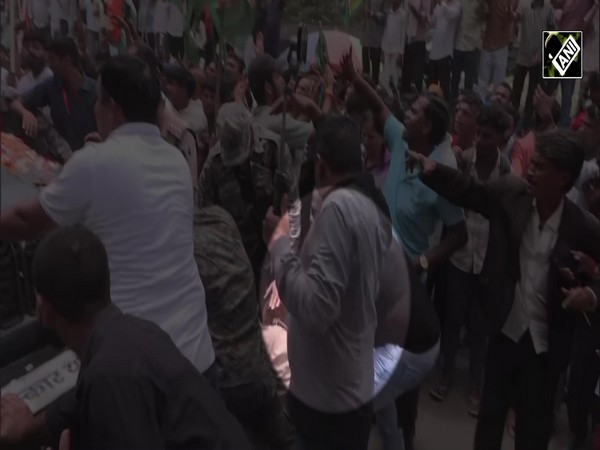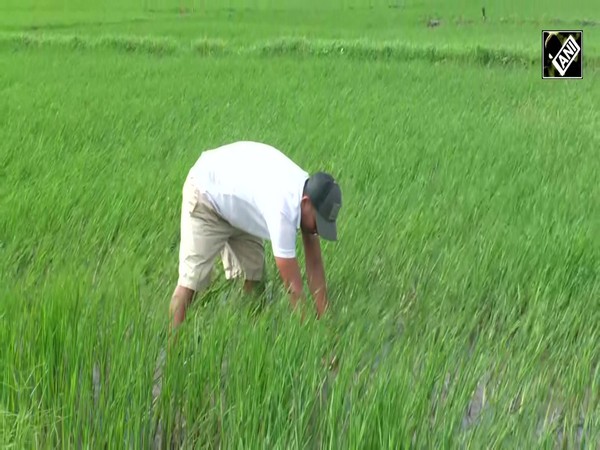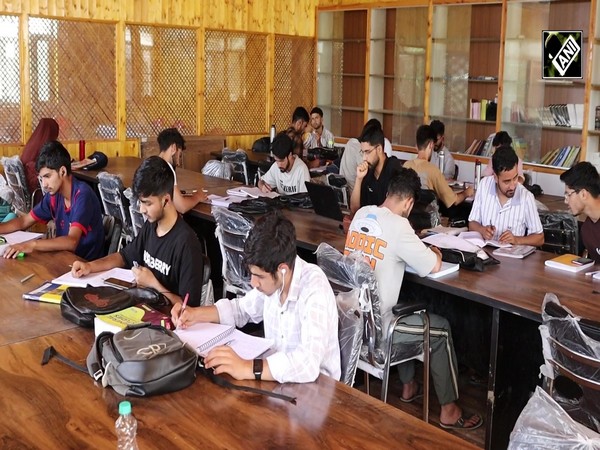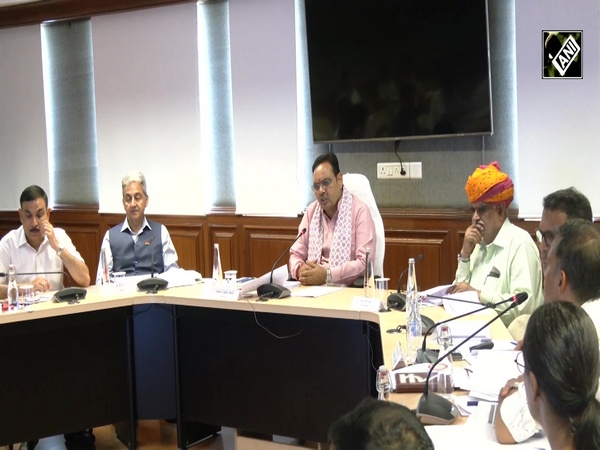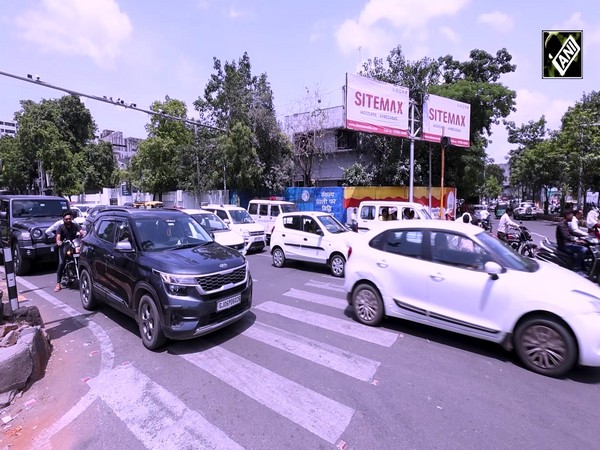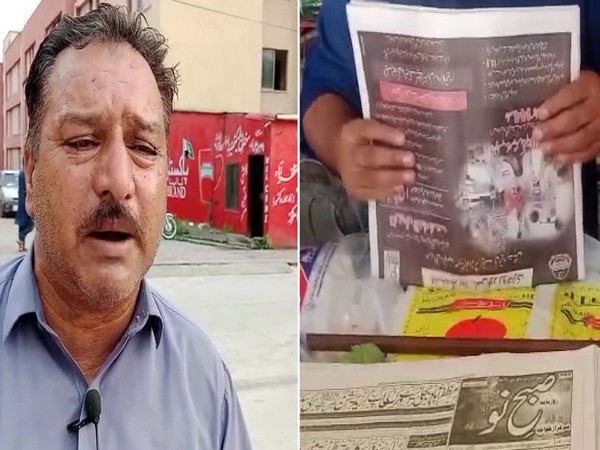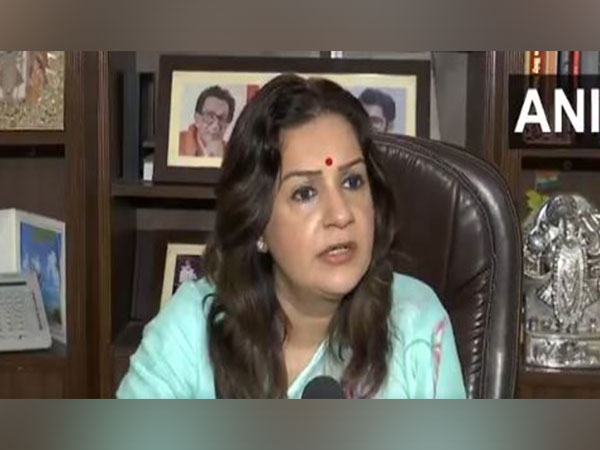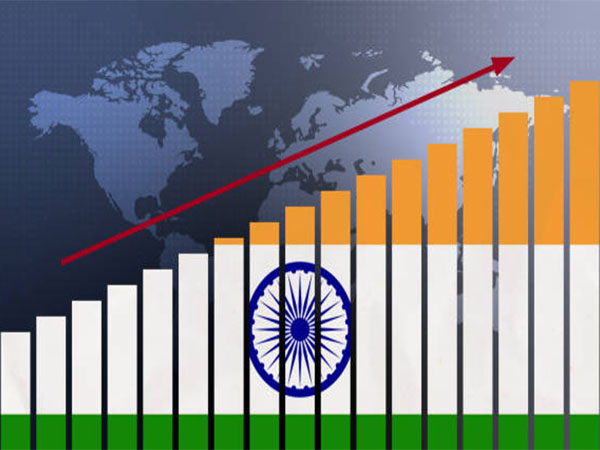
Sikyong Penpa Tsering questions China's motives in interfering with religious freedom of Tibetans
Jul 04, 2025
Dharamshala (Himachal Pradesh) [India], July 4 : Sikyong Penpa Tsering, President of the Tibetan Government-in-Exile on Friday strongly criticized China's interference in Tibetan religious matters, particularly regarding the selection of the Dalai Lama's successor.
He expressed concern over China's attempts to dictate the spiritual leadership of Tibet, questioning the government's motives and disregard for religious freedom amid preparations for the upcoming birthday celebrations of the Dalai Lama.
"That's for the Chinese government to decide--whether a government that does not believe in any religion wants to interfere in the religious freedom of the Tibetan people, not just occupy our country, but also force a lot of things on us, including religious freedom to choose our own spiritual leader. So that's very unfortunate," said Tsering.
He clarified the historical context behind the Golden Urn, a tradition introduced in 1793, which China claims is essential for recognizing the Dalai Lama and pointed out that there were eight Dalai Lamas before the Golden Urn's introduction, and it was rarely used in the selection process.
"The Chinese government always keeps saying something. What you're saying is they're saying that we broke from tradition. What tradition is the Chinese government talking about? The Golden Urn. This was introduced only in 1793, late 18th century. There have been eight Dalai Lamas before that. Are those Dalai Lamas not Dalai Lamas because there was no Golden Urn? And the Golden Urn was hardly used in the 9th and 11th Dalai Lama. Even those cases were done much after the candidates were already selected through traditional means," he added.
This comes after China's Foreign Ministry on Wednesday once again emphasised that the reincarnation of the Dalai Lama must be approved by the central government in Beijing.
Spokesperson Mao Ning stated that Tibetan Buddhism is a religion with Chinese characteristics and that the reincarnation process must follow traditional methods, including the drawing of lots from a Golden Urn.
"Tibetan Buddhism was born in China and is a religion with Chinese characteristics," spokesperson Mao Ning said in a news briefing.
Mao Ning referenced an 18th-century Qing dynasty selection method, which involves drawing lots from a golden urn to determine the reincarnation of high-ranking Buddhist figures.
"The reincarnation of the Dalai Lama, the Panchen Lama and other great Buddhist figures must be chosen by drawing lots from a golden urn, and approved by the central government," said Chinese Foreign Ministry spokeswoman Mao Ning.
Tsering also addressed key concerns ranging from youth leadership to religious freedom and international participation in the celebrations.
"I always try to spend as much time with the Tibetan youth as possible because we have to build future leadership, and wherever I travel around the world, I make time to speak with the youth. The main purpose of speaking to the youth is to build future leadership and also encourage them to be part of the larger movement. But their attendance and attention inspire us in return, so it's two-way traffic when it comes to inspiring each other, working together," Tsering said.
Highlighting the scale of participation and the diplomatic presence at the upcoming birthday celebrations of the Dalai Lama, Tsering said, "We have four members from the State Department coming and three staffers from the US Embassy in Delhi. And of course, a lot of other guests, and this time the focus is more on Indian guests. Two central ministers, one chief minister, another one said he's coming, but last minute he had to withdraw because of some other engagement. And then we have the Ladakh Hill Council chairman and all the committee members coming this time."
Addressing speculation about the absence of the Himachal Pradesh Chief Minister, Tsering explained the ongoing nature of the celebrations and efforts to ensure continued participation of dignitaries.
"This is being celebrated in Himachal. His Holiness lives here. CTA is here, so there are a lot of questions about why the Himachal Chief Minister is not here. So, as I said, we are going to celebrate this through the year as a year of compassion. We have a lot more events coming up. We need more chief guests for events to come also, so I personally approached the Himachal Chief Minister to be present, and he decided to come on 10th December when we celebrate again--90th birthday as part of the 90th birthday celebration, the day His Holiness received the Nobel Peace Prize--anniversary of that," said Tsering.
As the celebrations continue, Tsering also addressed the deeply sensitive issue of the Dalai Lama's reincarnation, asserting that the decision rests solely with the Gaden Phodrang and not with the Chinese authorities. He reiterated that the Tibetan people will never accept China's use of reincarnation for political purposes.
"During the 15th Tibetan Religious Conference held in Dharamsala... a consensus was reached on the following important points -- The core process of recognising the reincarnation of the Dalai Lama is as per the unique Tibetan Buddhist tradition. Hence, we not only strongly condemn China's usage of the reincarnation subject for their political gain, but we shall never accept it. Tibetans both inside and outside Tibet made a pledge to maintain national unity of solidarity and continue to struggle for the just cause of Tibet in a bid to extend wholehearted cooperation to the fulfilment of the Dalai Lama's noble wishes and aspirations..."
Tsering also accused the Chinese government of systematically attempting to erase Tibetan identity by targeting its language and religion.
"Right now, if you see all the policies and programs that the Chinese government have laid down in Tibet, it is all aimed at destroying the identity of the Tibetan people. Xi Jinping's government is targeting the Tibetan language and Tibetan religion, which is the basis of Tibetan identity," said Tsering.
He further confirmed that the Dalai Lama had agreed to continue the institution of the Dalai Lama following repeated requests from communities across the world.
"Various sections of people, including the participants of the 14th Tibetan Religious Conference, Special General Tibetan Conference, Tibetans both in and outside Tibet, Buddhist brothers and sisters from the Himalayan region, Mongolia, China and believers across the globe, appealed an earnest request with single-minded devotion to Dalai Lama to continue the institution of the Dalai Lama for the benefit of all sentient beings in general and Buddhists in particular. In response to this overwhelming supplication, the Dalai Lama has shown infinite compassion and finally agreed to accept our appeal on this special occasion of his 90th birthday," he said.
Earlier, the Tibetan spiritual leader, the 14th Dalai Lama, reiterated that the institution of the Dalai Lama will continue, stating that the responsibility for recognising the 15th Dalai Lama lies solely with the Gaden Phodrang Trust.
"Members of the Tibetan Parliament in Exile, participants in a Special General Body Meeting, members of the Central Tibetan Administration, NGOs, Buddhists from the Himalayan region, Mongolia, Buddhist republics of the Russian Federation and Buddhists in Asia, including mainland China, have written to me with reasons, earnestly requesting that the institution of the Dalai Lama continue. In particular, I have received messages through various channels from Tibetans in Tibet making the same appeal. In accordance with all these requests, I am affirming that the institution of the Dalai Lama will continue," he said.
He reaffirmed that no entity other than the Gaden Phodrang Trust has any authority in the matter of selecting the next Dalai Lama.
"The process by which a future Dalai Lama is to be recognised has been established in the 24 September 2011 statement, which states that responsibility for doing so will rest exclusively with members of the Gaden Phodrang Trust, the Office of His Holiness the Dalai Lama. They should consult the various heads of the Tibetan Buddhist traditions and the reliable oath-bound Dharma Protectors who are linked inseparably to the lineage of the Dalai Lamas. They should accordingly carry out the procedures of search and recognition in accordance with past tradition. I hereby reiterate that the Gaden Phodrang Trust has sole authority to recognise the future reincarnation; no one else has any such authority to interfere in this matter," the Dalai Lama added.
